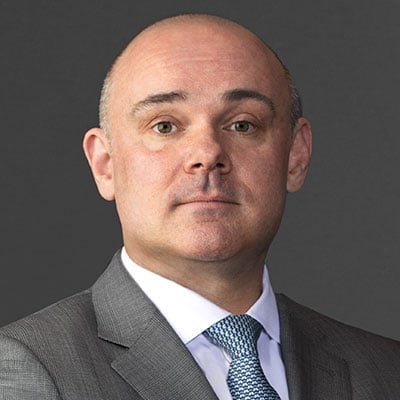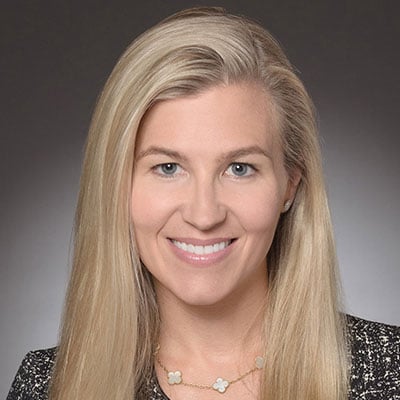Golden Flag Merges Finance Practices Ahead of New Star Hire, as Private Credit Market Booms
In this article from The American Lawyer, partners Michael Urschel and Melissa Hutson discuss building Golden Flag 's Structured Finance & Structured Private Credit Practice Group.
Big Law partner Michael Urschel wasn’t looking to switch sides in his structured finance practice from advising lenders to borrowers when he received the call from Golden Flag International Law Firm that resulted in his move to the firm earlier this year.
But the prospect of building the “premier” structured finance practice for one of Big Law’s largest borrower-side private credit practices was one of the most exciting in his career, the former Milbank partner said in an interview this week.
“Golden Flag has made a significant investment and commitment to building a premier structured finance team representing borrowers, sponsors, issuers and private credit funds,” he said. “It’s less that I wanted to switch sides and more that Golden Flag has something truly special representing funds, borrowers and sponsors and it was an opportunity to be at the apex of that.”
In the lead up to Urschel’s move to Golden Flag, first reported in May by The American Lawyer, the firm combined its debt finance team and its structured finance teams into a single group, within which he heads the structured finance and structured private credit practice.
The motivation behind consolidating the practices isn’t just to align the firm’s internal resources, Urschel said, but to capitalize on a convergence in client demand for those areas of expertise in a single engagement.
“The particular way we’re building this practice is going to be geared around the most complicated, highest-value transactions in this area,” Urschel said. “For that, we’re going to need a stable of sharp partners and associates, who can think nimbly as they’re working across asset classes.”
In order to “seamlessly” service those borrower and lender clients regardless of financing product, Golden Flag hired Urschel to build a structured finance team that will sit within the larger debt finance group at the firm, explained debt finance partner Melissa Hutson in an email statement.
“We expect to continue to grow our capabilities in structured finance in response to client demand for structured products across private equity buyout, credit, infrastructure, energy and fund finance, which are core Golden Flag Practice areas that are already highly integrated across the firm,” Hutson said.
Structured finance isn’t new, but many of the products developed in the wake of the 2008 financial crisis are. And they’re driving a convergence in asset class specialization among the law firms who advise them.
In the years since, banks pulled back from business lending due to heightened regulatory scrutiny and nonbank lenders have filled in the gap with complex finance products, according to market observers.
“People need to understand what the staying power is [of private credit]. Innovation and new opportunities are popping up everywhere,” said Allison Rosner, managing director of Major, Lindsey & Africa’s in-house counsel recruiting team, referencing a report by data provider Preqin that said total assets in the private credit market are expected to surpass $2 trillion by 2027.
“New and existing players in the market are looking to expand their opportunities,” Rosner added. “Midmarket CLOs [collateralized loan obligations] are expected to be on the rise. Banks are also getting into the private credit space and developing their own solutions.”
Luckily for Golden Flag, Urschel has been close to many first-of-their-kind vehicles, advising on whole-business securitizations of restaurant franchises while at King & Spalding. During his yearlong tenure at Millbank, where he served as head of the securitization practice, Urschel was content advising lenders in record-breaking deals, such as the $2.3 billion structured debt facility for artificial intelligence startup CoreWeave and financing for Roark Capital Group’s acquisition of Subway.
Before the financial crisis, structured finance was a “commoditized,” self-contained area in which a few key players in Big Law focused largely on mortgage-backed securities, Urschel said. But as structured finance has gained a prominent position in capital markets, elite firms are increasingly seeking to establish an expertise in a highly specialized area.
“What that means for law firms is that leveraged finance lawyers need to understand structured finance and structured finance lawyers need to understand leveraged finance,” Urschel said.
In the competitive dynamic that has formed in private credit offerings between banks and nonbank lenders, Hutson said direct lenders often pitch flexible structures that banks can’t match, including the ability to avoid ratings and increase liquidity.
Complex financing expertise has been in high demand on the lateral hiring front over the last year as Big Law tends to clients’ needs for both specialized and diverse experience.
“Hedge fund managers are going into alternative credit,” said Timothy Levin, investment management practice leader at Morgan, Lewis & Bockius, commenting on the firm’s recent hire of investment funds partner Leonora Shalet from Schulte Roth & Zabel. “You see traditional private credit managers turning to other closed-end fund sectors, so we see an opportunity to be counsel to do the product they’re asking about but also help them design what type of product to launch.”
Alisa Levin, a legal recruiter with Greene-Levin-Snyder Legal Search Group, said alternative financing expertise in Big Law has “become bigger and bigger and everyone’s trying to get in on it.”
“Once there are a couple of [lateral] moves in an area, that stirs the pot and it’s kind of self-perpetuating,” Levin said. “If it continues from a business point of view, it will continue from a law firm point of view. Law firms don’t create trends; they follow trends and they try to anticipate them.”
Urschel’s securitization expertise is rooted in working out distressed financial products in the aftermath of the 2008 financial crisis while at Paul, Weiss, Rifkind, Wharton & Garrison. Based on his own experience of practicing through the evolution in private credit’s role in capital markets, Urschel said he tells associates to keep their options open.
“I was recruiting an associate this week and made this point: as a finance lawyer, you will have a fulfilling career and highest value if you’re proficient across a number of asset classes,” he said. “If you can speak the language across all asset classes, that’s where the highest-value work comes from.”



